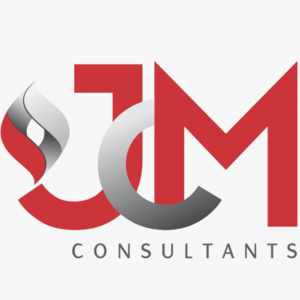Cloud Architect
Centurion
Posted 2 years ago
Primary Duties and Responsibilities:
To provide overall infrastructure and cloud designs and balance requirements against resource utilisation and architectural factors and in line with business strategy.
Required Qualifications:
- Bachelor’s degree in either Information Systems, Informatics, Computer Science, Engineering or any other relevant field.
- Honours or Master’s in information systems, Informatics, Computer Science or Engineering is preferred
- Microsoft Azure Certifications
Experience and Knowledge:
- 5-10 years and/or relevant industry experience as well as experience in relevant IT discipline
- Cloud domain knowledge, systematic requirements gathering skills, good communication skills, experience with cloud architecture tools, experience with Agile methodologies.
- Deep understanding of cloud computing platforms, including public, private, and hybrid clouds, as well as various cloud services and technologies.
- Ability to design and implement cloud-based architectures that meet the organisation’s requirements in terms of security, performance, scalability, and cost-effectiveness.
- Strong technical background in areas such as networking, databases, and security, as well as experience with Microsoft Azure cloud platform.
- Ability to effectively communicate with stakeholders, including business leaders, technical teams, and vendors, to understand their needs and requirements and to present technical solutions in a clear and concise manner.
- Experience in managing complex projects, including defining project scope, creating project plans, and coordinating with other teams to ensure successful implementation of cloud-based solutions.
- Ability to identify and troubleshoot technical issues that arise during implementation and maintenance of cloud-based solutions.
Key Responsibilities:
- Designing and implementing cloud-based infrastructure solutions, including compute, storage, network, and security components.
- Developing a migration strategy to move applications and data from on-premises to the cloud, taking into account factors such as security, performance, and cost.
- Cloud Application Architecture: Designing cloud-native applications that take advantage of cloud services and technologies, such as serverless computing and microservices architecture.
- Ensuring the security and compliance of cloud-based solutions, including data protection, identity and access management, and network security.
- Cloud Cost Optimization: Implementing cost optimisation strategies, such as rightsizing resources, using reserved instances, and leveraging spot instances, to minimise cloud costs while maintaining performance and scalability.
- Optimising the performance of cloud-based solutions by monitoring and analysing performance metrics, identifying and resolving performance bottlenecks, and implementing best practices for performance optimisation.
- Designing and implementing disaster recovery solutions for cloud-based applications and data, including backup and recovery, high availability, and disaster recovery testing.
- Contribute to a culture conducive to the achievement of transformation goals by participating in Company Culture building initiatives.
- Participate and support corporate social responsibility initiatives for the achievement of business strategy.
- Identify opportunities to improve or enhance processes by identifying and recommending improvements to tools; policies and procedures to add value to the firm.
- Reduce risk by ensuring accuracy of information through compliance with risk and compliance requirements.
- Keep abreast of legislation and other industry changes that impacts on role by reading the relevant newsletters; websites and attending sessions.
- Understand and embrace the company’s Vision and Values by demonstrating the values through interaction with team and stakeholders.
- Create and manage own career through guidance and support of management; department and colleagues.
- Improve personal capability and stay abreast of developments in field of expertise by identifying training courses and career progression for self through input and feedback from managers.
- Ensure personal growth and enable effectiveness in performance of roles and responsibilities by ensuring all learning activities are completed; experience practiced and certifications obtained and/or maintained within specified time frames.
- Ensure knowledge management; continuity and team success through constructive participation in a diverse team and sharing knowledge with team.
- Utilise resources by complying to organisational and departmental standards and procedures.
- Demonstrate understanding of policies; procedures and standards by completing relevant surveys.
- Identify risks according policies and take corrective action according to level of control.
- Communicate dependencies to project team.
Competencies:
- Critical Thinking: Using logic and reasoning to identify the strengths and weaknesses of alternative solutions, conclusions or approaches to problems.
- Active Learning: Understanding the implications of new information for both current and future problem-solving and decision-making.
- Systems Analysis: Determining how a system should work and how changes in conditions, operations, and the environment will affect outcomes.
- Complex Problem Solving: Identifying complex problems and reviewing related information to develop and evaluate options and implement solutions.
- Deductive Reasoning: The ability to apply general rules to specific problems to produce answers that make sense.
- Inductive Reasoning: The ability to combine pieces of information to form general rules or conclusions (includes finding a relationship among seemingly unrelated events).
- Excellent communication skills: Ability to engage with C-level stakeholders, both verbal and non-verbal and communicate a deep understanding of the business and a broad knowledge of technology and applications.
- Technical Literacy: Possess a high level of technical literacy, which helps them determine how a software solution fits into an organization’s current structure and assists in the development of specifications and requirements.
- Analytical Assessment: A high level of analysis to examine current systems and determine overall project needs and scope.
- Schedule Management: Extensive time management skills to determine development schedules and milestones and ensure that deliverables are completed on time for oneself and your team.
- Team Leadership: To oversee and direct development teams throughout the project development lifecycle, experience with team leadership and motivation is essential.
- Ability to translate strategy and strategic objectives into measurable and executable projects.
- Experience working on a large project(s) incorporating processes and procedures and standards.

Leave a Reply
Want to join the discussion?Feel free to contribute!